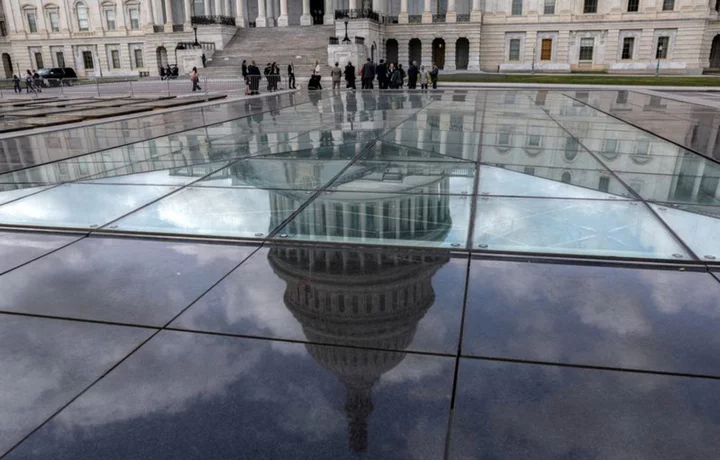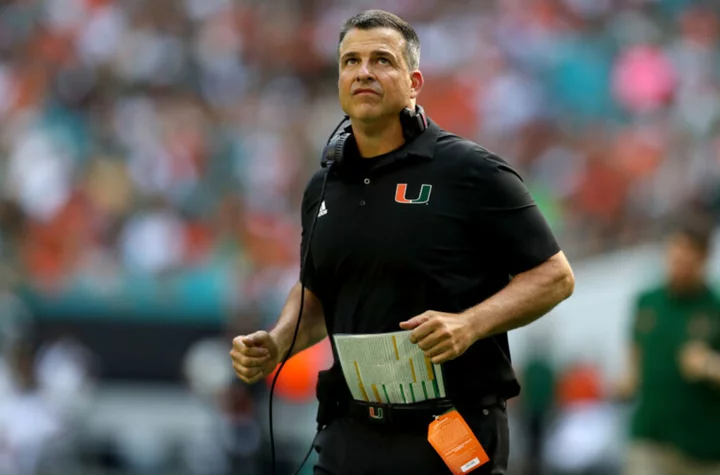By Makini Brice and Richard Cowan
WASHINGTON (Reuters) -Republicans in the U.S. House of Representatives on Friday turned to a new strategy in a long-shot bid to prevent the fourth government shutdown in a decade, as time runs short ahead of a Sept. 30 deadline.
Republicans have so far failed to advance legislation that would keep the government running when the new fiscal year starts on Oct. 1.
Instead, they are preparing four separate spending bills, most of which reflect the deep cuts sought by the party's right flank. They are certain to be rejected by the Democratic-controlled Senate, as they are far below spending levels outlined in a deal with Democratic President Joe Biden earlier this year.
The White House said Biden would veto two of those bills.
The House could vote on those bills on Tuesday, Speaker Kevin McCarthy said. Passage of the spending bills could give Republicans some leverage in negotiations with the Senate.
McCarthy said he hopes that would give him leeway to advance a stop-gap funding bill to keep the government running through Oct. 31. Some hard-right Republicans have balked at that idea.
"I still believe if you shut down, we are in a weaker position. You need the time to fund the government while you pass all the appropriations bills," he said, adding that he thought the main focus of the overall spending fight should be new immigration controls on the border.
If Congress does not agree on spending levels, many government activities, from financial oversight to civil litigation, would be curtailed.
The House Rules Committee met on Friday afternoon to consider the four bills, which would fund the military, homeland security, agriculture programs, the State Department and other foreign operations for the full fiscal year.
Republicans hold a narrow 221-212 majority in the House and can afford very few defections.
On Thursday, the House blocked a procedural vote on an $886 billion defense spending bill, as five Republicans joined Democrats to capsize it. It was the third time the Republicans had failed to advance that legislation, which typically gets broad support from the party.
Former President Donald Trump, the frontrunner for the Republican nomination for the 2024 presidential election, has cheered on a shutdown. During Trump's four-year presidency, the government shuttered three times.
A shutdown is not a foregone conclusion. Senate Majority Leader Chuck Schumer, a Democrat, has scheduled a procedural vote on Tuesday evening to advance a stopgap funding bill.
If it passes, McCarthy would have to decide whether he would bring it up for a vote in the House, knowing it could enrage his far-right Republicans.
That could spark a move to remove McCarthy from his speakership, leading to further chaos in the House.
(Reporting by Makini Brice and Richard Cowan; editing by Andy Sullivan and Alistair Bell)









